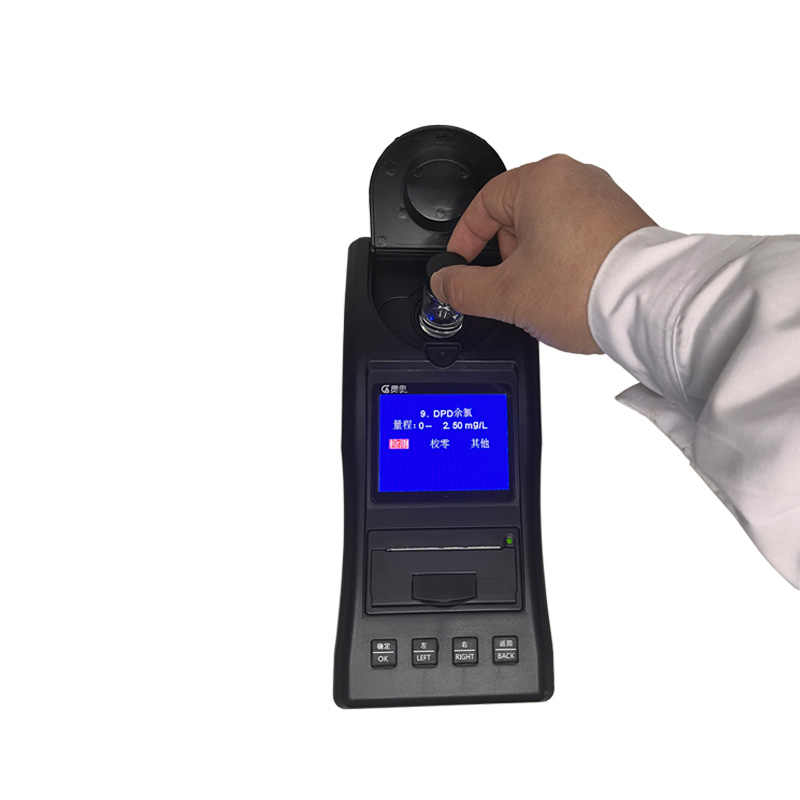The residual chlorine water quality tester mainly has functions such as water quality monitoring, water treatment control, drinking water safety monitoring, environmental monitoring, etc. The specific functions are as follows:

2. Water treatment control: During the water treatment process, the concentration of residual chlorine needs to be strictly controlled. The residual chlorine water quality tester can be used to detect the residual chlorine content in the water treatment process, help operators adjust the dosage of disinfectants, and ensure the operation effect and water quality safety of the water treatment system.
3. Drinking water safety monitoring: Excessive or low residual chlorine content in water can have an impact on human health. The residual chlorine water quality tester can help individuals or institutions monitor the residual chlorine content of drinking water, swimming pool water, etc., ensuring that the water quality meets hygiene standards, thereby ensuring people's health and safety.
4. Environmental monitoring: In addition to its impact on water quality, residual chlorine may also have a negative impact on the environment. The residual chlorine water quality tester can be used to monitor the residual chlorine content in lakes, rivers, and other water bodies, helping environmental protection agencies evaluate the ecological status and pollution level of water bodies.
In summary, the main function of residual chlorine water quality testers is to quickly and accurately measure the residual chlorine content in water, used for water quality monitoring, water treatment control, health and safety protection, and environmental monitoring.



